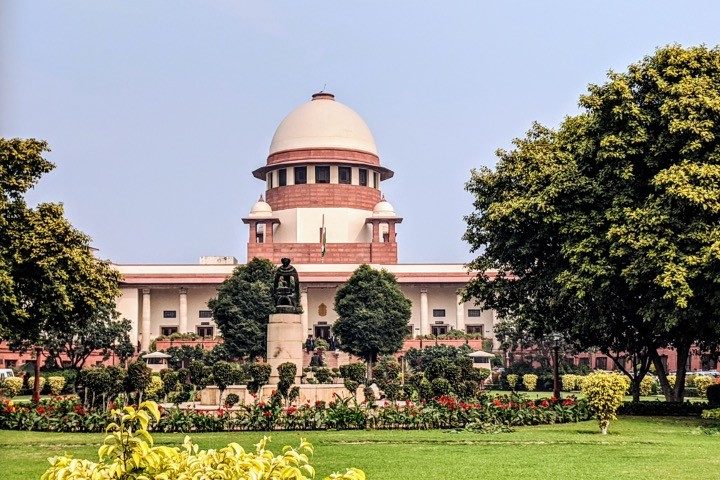
SINGAPORE — India’s Supreme Court ruled on Thursday, Sept. 29 that all women, irrespective of marital status, can legally abort their unborn children up until week 24 of pregnancy.
“Even an unmarried woman can undergo abortion up to 24 weeks on par with married women,” claimed Justice D. Y. Chandrachud of India’s Supreme Court, in a ruling that serves as a major setback for pro-lifers.
“The decision to have or not to have an abortion is borne out of complicated life circumstances, which only the woman can choose on her own terms without external interference or influence,” the court added in its ruling.
According to the new ruling, all women may seek to kill their unborn children, irrespective of societal background. Previously, single women could kill their babies up until week 20 of pregnancy, while married women could do so up until week 24.
A law dating from 1971, the Medical Termination of Pregnancy (MTP) Act, had limited the killing of unborn babies to married women, divorcees, widows, minors, and “disabled and mentally ill women,” as well as rape or sexual assault survivors.
Thursday’s ruling was catalyzed by the case of a pregnant single mother who was not allowed to kill her child because she was unmarried and had exceeded the 20-week mark for single women.
The woman claimed she wanted to kill her baby because her partner had dismissed claims of marrying her, and reasoned that having a child out of wedlock would subject her to “social stigma and harassment.” Furthermore, the woman said, it was costly to bring up a child because she was unemployed and was not rich. She also claimed that she was not mentally prepared to raise a child.
After the Delhi High Court rejected her plea for an abortion, the woman sought help from the Supreme Court, which permitted her to abort her unborn child up to the 24-week point. The court’s ruling has set a precedent leading it to permit all women to abort their children at a more advanced stage of pregnancy.
The Supreme Court’s ruling came despite tangible, scientific evidence and regular use of ultrasound technology undeniably proving that at 24 weeks of pregnancy, babies’ facial features — such as eyebrows, eyelashes, and hair — are already formed amidst other organ development. Mothers who are 24 weeks pregnant can even feel the movements of their babies in their womb.
Abortions have been legal in India since 1971, yet authorities have enforced rules defining who can kill their baby and until what stage. In a country with a traditional preference for sons, millions of female children have been killed by abortion, causing a disproportionate ratio of men to women in the country.
Another reason the judgment caused such a huge sensation in India is because of what it says about marital rape.
The judges elucidated at the beginning that their order was not really about the legality of marital rape, as that was being heard by another bench. Yet the judges were unambiguous that if a woman gets pregnant “due to a husband’s act of sexual assault or rape, she should not be compelled to give birth to and raise a child with a partner who inflicts mental and physical harm upon her.”
At present, the Supreme Court is hearing a petition to outlaw rape within marriage.
“We would be remiss in not recognising that intimate partner violence is a reality and can take the form of rape. Sex and gender-based violence [in all its forms] within the context of the family has long formed a part of the lived experiences of scores of women,” the order said.
Such remarks have garnered support from left-leaning feminists and activists, but have served as a bone of contention among “men’s rights” activists, who say they could be manipulated by unscrupulous women who badger their husbands.
Although the Supreme Court judges claimed that their recent ruling was only applicable to the abortion law, speculation abounds as to whether this ruling will lead to the top court eventually outlawing marital rape.
India’s Supreme Court decision comes just weeks after the U.S. Supreme Court bolstered the pro-life cause in its historic decision to overturn Roe v. Wade, the inhumane law permitting abortion-on-demand nationwide since 1973.
Elsewhere, a recent Hungarian Heartbeat Law mandates that doctors show mothers their child’s heartbeat before allowing them to decide to abort. This decision was welcomed by pro-lifers, who say that mothers need to make an informed decision on the humanity of their unborn child before undergoing an abortion. A spokeswoman from the Society for the Protection of Unborn Children (SPUC) told Breitbart London that the Hungarian law “acknowledges the humanity of the unborn, and it could save lives.” “If mothers have the opportunity to hear the beating heart of their baby, they may reject abortion,” the spokeswoman elaborated, highlighting that a “team funded by the British Heart Foundation at the University of Oxford has demonstrated that an unborn child’s heart can begin to beat as early as 16 days after conception.”
Katalin Novák, the president of Hungary, revealed to Breitbart in 2019, when she was the government’s family minister, that she personally was not in favor of abortion.
“What does the pro-abortion movement say? That they are pro-choice. But they are not pro-choice,” she said.
“This is so misleading,” she explained. “There is no choice. If you already have a child in you, then what you do then is not a choice. That is not a moment for choice. The choice is before. Pro-abortion is pro-killing; it is against choice.”



